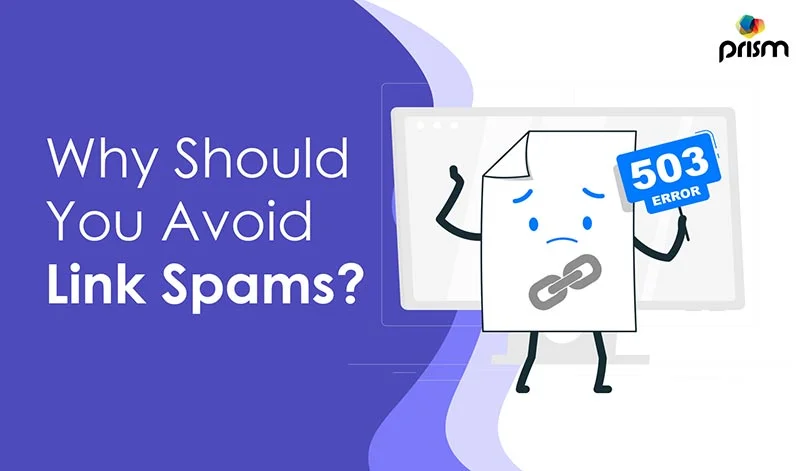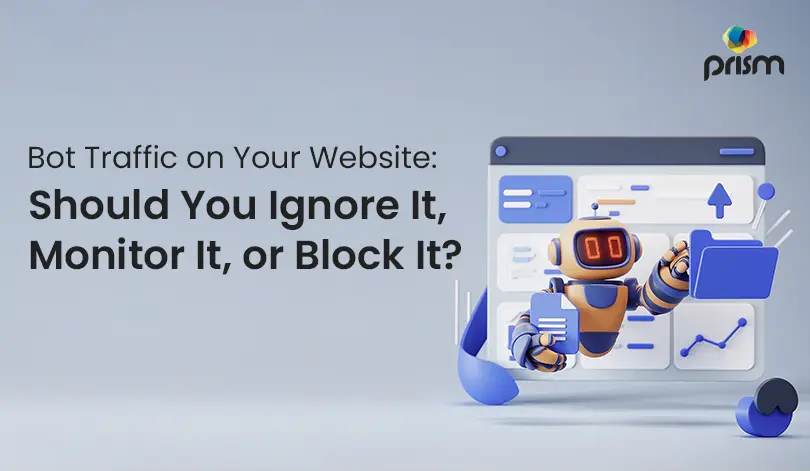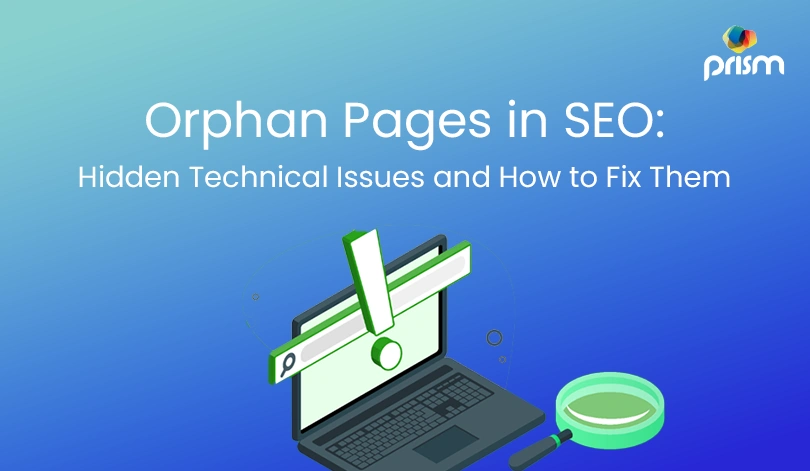

What are Link Spams and Why Should You Avoid Them?

Link spam began in website guestbooks, where spammers would paste links to the site they were promoting over and over again. Spammers began attacking open comments in blogs in 2003.
Many blog software systems now have mechanisms for preventing or reducing link spam. For example, Jay Allan created MT-Backlist, a free plugin for Movable Type-based blogs to combat link spam.
Spammers began looking for new targets, such as wikis because common targets were being protected. As a result, the term "wikispam" was coined. Many wikis, including Wikipedia, have spammed links on pages in their sandbox testing areas, as well as active pages that have been defaced by links.
Many of us refer to poorly executed link-building strategies as "white hat," but they can be just as dangerous as black-hat strategies like buying links which is, mind you, not a digital marketing solution in any way.
Many sites have seen significant drops in rankings and traffic as a result of well-intentioned but short-sighted link building.
Whether you use black, white, or any shade of grey link-building tactics, you can help yourself by avoiding the appearance of link spam.
There are several signs of link spam on a website:
1. Spam posting
When a black-hat link builder posts solo links in public forums, comment sections, or guest books, the term "spam posting" is most commonly associated with the term "link spam."
These types of web fields are popular among link spammers because they have low entry barriers, making it simple for them to set up accounts and post spam comments with links. These links, on the other hand, are incredibly easy to identify as spam, and they often receive very few actual clicks.
2. Hidden links
Another type of link spam is hidden links, in which a website hides hyperlinks throughout its posts so that site visitors can't see them. The site may change the color of hyperlinks to match the background, hide hyperlinks in images that site owners don't expect many site visitors to click on, or even hide hyperlinks in the site's code, so only the algorithm can see them.
This hidden link strategy accomplishes the quantitative goal of link spamming without looking like it.
These types of cheap tactics are used by sites trying to save money by avoiding SEO consultancy costs and saving their money by skipping hiring a competent SEO agency for their business.
The same strategy can be used with press release links, in which site owners write and distribute their own press releases that include links to their conversion pages.
3. Link farms
Link farms are a type of link spam that includes the help of website owners. Site owners who engage in link farming will link to each other on a regular basis solely for the purpose of building backlinks. This practice, however, is not considered authoritative linking, and thus has no effect on a link farmer's backlink profile or has a negative impact by eventually flagging the farmer's entire site as spam.
4. No-follow links
A large number of no-follow links on a page could indicate link spamming. To improve the page's backlink profile while avoiding Google's spam detectors, some automated link-building programs will use randomized no-follow links.
Since the Penguin update, however, it has become extremely difficult for any automated system to avoid being flagged by the algorithm, which now evaluates links based on their quality and posting context rather than their quantity.
Nofollow links also don't pass PageRank because they don't have any link juice. Even if no-follow links aren't flagged as spam, they still don't help your SERP ranking.
5. Single-post blogs
Through a variety of keyword-focused and linkable content, a blog presence is typically a great way to improve your linkability. Blogs, on the other hand, become assets over time as a result of consistent and authoritative posting, not simply because they exist.
A site owner will post one link-packed article in the hopes of improving their backlink profile, so single-post blogs can be a sign of link spam. However, due to their isolation, these blogs often have little impact, as they are unlikely to receive many impressions or independent traffic.
6. Cleansing domains
301 "cleansing" domains, while not technically a form of link building, are a link manipulation dynamic that every SEO manager should be aware of. When you play the black hat game, you know there's a good chance you'll get burned.
One traditional safe way to quickly recover from Google actions like Penguin is to build links to a domain that redirects to the main domain. While the rest of us labor to remove scores of exact-match anchor text, spammers simply cut the troublesome redirected domains loose like anchors and float away into the night with whatever loot they've amassed.
Because new links to a domain that is currently redirecting are hardly natural behavior, link building through redirects should be easy to detect.
The fact that search engines aren't paying attention right now is no guarantee of future success, so you should avoid this if future success is a goal.
7. Paid links in content
There will never be an entirely foolproof method of detecting every paid link. However, when you do things in bulk, it's easier than you think to leave a mark.
You must trust your sellers not to make it obvious, and you must trust the other buyers to keep unwanted attention away from their own websites.
If a buyer with whom you have no relationship buys links recklessly, the scrutiny will trickle down to the sites from which they are buying, and eventually back to you.
Knowing what you're doing isn't enough if you buy links. Ascertain that everyone involved understands what they're doing. When it comes to buying links, Google is not forgiving.
8. Low-quality press release syndication
For spammers, high-quality syndication and wire services have a few unappealing features: editorial guidelines, costs, and even fact-checking. Syndication services of poor quality will send almost anything to any site that will accept it. You'll have a lot of links, but few of them will be indexed, and even fewer will be counted.
9. Switch and linkbait
In this case, we're talking about creating a real piece of linkbait for reputable links, then replacing it with something more financially beneficial later. It's clear that tricking people into linking to content isn't something Google would approve of.
I don't see linkbait and switch done very often, but every time I do, I die a little inside. There's no need to upset link partners and search engines if you can create and spread viral content. Instead, make the most of it with clever links on the viral URL, repeat your success, and establish yourself as a reliable source of quality content.
Link spam is used to increase the number of external links to a site that the spammer wants to promote in order to boost its ranking. The level or rank of a page rises as the number of links to it rises. It improves its search engine results page ranking (SERPs).
The higher the ranking in web searches, the more competitors will be visible, resulting in more visitors, traffic, and potentially more paying customers.
This, theoretically, is the rationale behind link spamming. However, it almost never works and the risk of getting caught and penalized by search engines is too great to ignore.
Link spam is almost certainly counterproductive for those who engage in it. When different search engines determine that a site is not well-viewed, traffic and ranking may suffer. It's even possible that it won't show up in the search results at all.
To prevent or reduce comment spam, measures such as requiring manual approval of comments containing and detecting spam using a blacklist of banned words have been implemented.
Step 1: Recognize Types of Link Spam
With a few exceptions, such as editorial links from large publications, virtually any link that is unimportant to a website is considered link spam. Here's a quick rundown of the most common ones to avoid:
- Penalized domain links.
- Links from link farms and link directories
- "Bad Neighborhood" Links (Porn, Pharmacy, Online Gambling).
- Links to the site from sites where the language does not match the site's language.
- There are a lot of links from different websites that aren't related to each other.
- Anchor text links that are an exact match.
Step 2: Determine Source
Since all links that adhere to their "toxic" link definitions are flagged, several tools can be very useful in determining the origin of spam links.
You should try to use a tool that allows you to export the data, regardless of which option you choose for detecting spam links. This will allow you to create a file that can be downloaded, as well as sort and classify the data you find, which will help you figure out which websites to contact first to request that their links to your site be removed.
Step 3. Request that Spam Links Be Removed
Your chances of getting spam or low-quality link removed by requesting it from the webmaster are nearly nil. However, Google requires you to complete this step before asking them to ignore the link, so it should be completed regardless.
Most of the time, finding the contact information for the person who has access to that website is impossible. Many don't even have a generic contact page to receive emails; in this case, try using the WHOIS option on the domain to see what information is available.
Most likely, information such as the organization's name, state, and country of origin will be obtained; however, these details are rarely useful, and the list will be devoid of email addresses.
You can contact the website's hosting company and request that the identified unwanted links be removed. In the majority of cases, it will work.
Step 4: Create and Send Disavow File to Google
You can use this tool to import a text file into Google Search Console, which contains the links you want Google to ignore. With the ability to specify specific URLs, Google can be instructed to ignore each link for a specific domain.
The backlink profile should be scrutinized thoroughly. The tool must be used with caution so that the actual backlinks with authority are not disallowed, and the page's organic ranking is not harmed.
Once the file has been sent, it must be processed. It's just a matter of waiting for the classification to be gradually restored.
Within the next few weeks, a new spam algorithm will be rolled out with the goal of combating link spam in general.
This link spam update identifies and eliminates spammy links "more broadly" and "across multiple languages." As Google's algorithms re-evaluate those links, sites that participate in link spam will see changes in Search.
Link spam is being eliminated. As you can see, Google used the word "nullifying" here, which does not necessarily mean "penalize," but rather "ignore" or "do not count." Google's efforts to combat link spam have been to ignore and not count spammy links since the release of Penguin 4.0 in 2016.
It could feel like a punishment. While Google may not penalize your site for these spammy links, it may feel like a penalty if Google ignores or nullifies links that may have helped a site rank well in Google Search.
In short, if your rankings drop in the next few weeks, especially if it is a significant drop, it could be due to this update.
Therefore, it is important, now more than ever, to make sure all your content and traffic is organic, or you will have to suffer the consequences.
Spam Links: They aren't worth it
I purposefully wrote about how spam links "appear." If you believe black hat SEO is immoral, or otherwise unethical, that's fine; just make sure your white hat links don't resemble black hat links. If you believe that white hat SEO managers are sheep or Google's pawns, the same rule applies: your links should not appear manipulative.
The abovementioned tactics are not recommended because the potential benefits do not outweigh the risks. If your dubious link building fails and your links are devalued, you'll have wasted a lot of time building links that don't matter.
There's also the opportunity cost: what else you could have done with your time? Finally, removing a manual penalty can take a lot of time as well. This is why it is advisable to stay away from black hat SEO tactics and be safe.
This is it for today’s blog. I hope you enjoyed reading it. Do share your feedback with me and reach out to me if you have any queries. I will get back to you as soon as I can. If you want your business website to rank higher on Google SERPs organically, contact the experts at Prism Digital, the best SEO agency in Dubai and we will help you build and implement strategies that actually work. See you on the other side. Goodbye.

About The Author: Lovetto Nazareth
Lovetto Nazareth is a digital marketing consultant and agency owner of Prism Digital. He has been in the advertising and digital marketing business for the last 2 decades and has managed thousands of campaigns and generated millions of dollars of new leads. He is an avid adventure sports enthusiast and a singer-songwriter. Follow him on social media on @Lovetto Nazareth
Post Your Comment!
Recent Blogs

Does AI Content Work for Search Engines? What Google Actually Rewards in 2026

Bot Traffic on Your Website: Should You Ignore It, Monitor It, or Block It?

GEO, AEO, LLMO vs SEO: New Strategy or Just Old Wine in a New AI Bottle?

Orphan Pages in SEO: Hidden Technical Issues and How to Fix Them

Support
Phone: +971 55 850 0095
Email: sales@prism-me.com
Location: Prism Digital Marketing Management LLC Latifa Tower, Office No. 604 - West Wing World Trade Center 1, Sheikh Zayed Road Dubai, UAE
Subscribe
Join our newsletter to stay up to date on features and releases.
By subscribing you agree to our Privacy Policy and provide consent to receive updates from our company.
